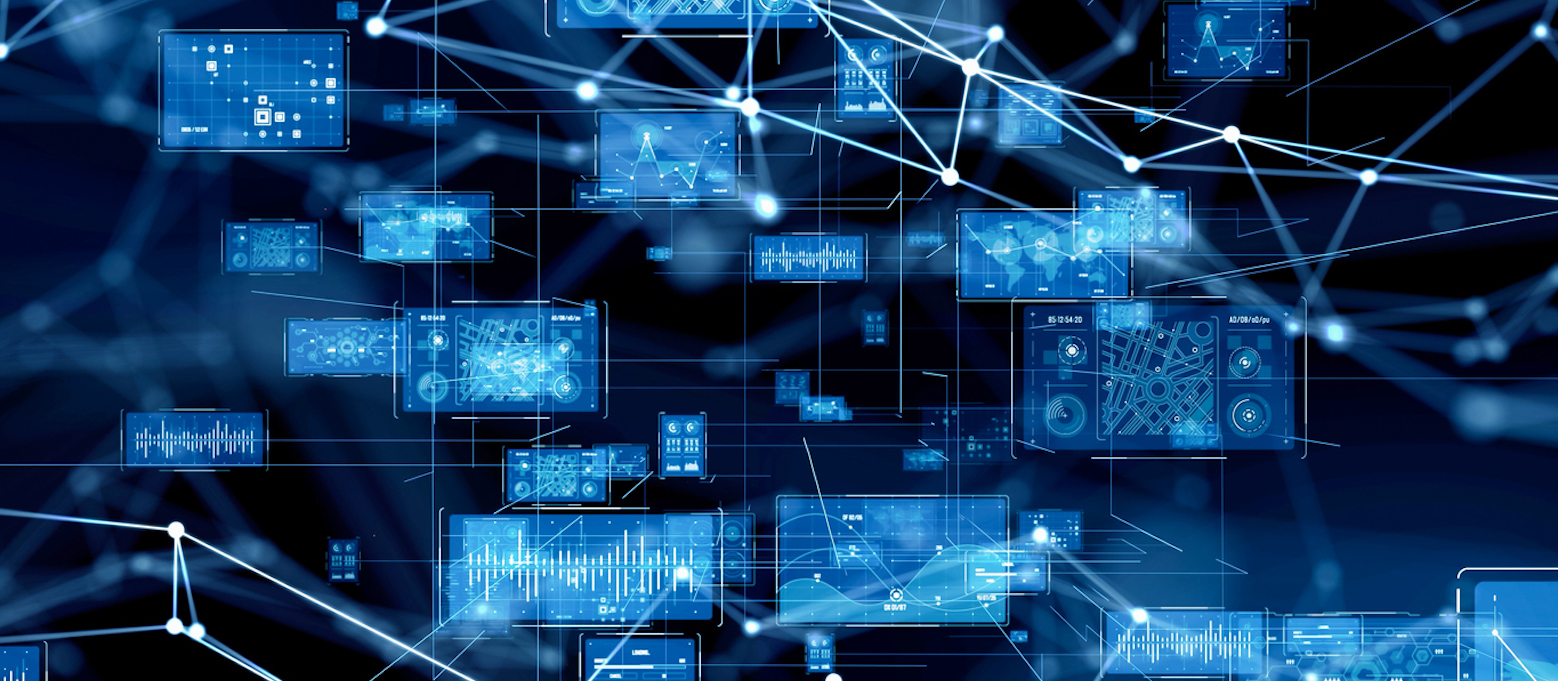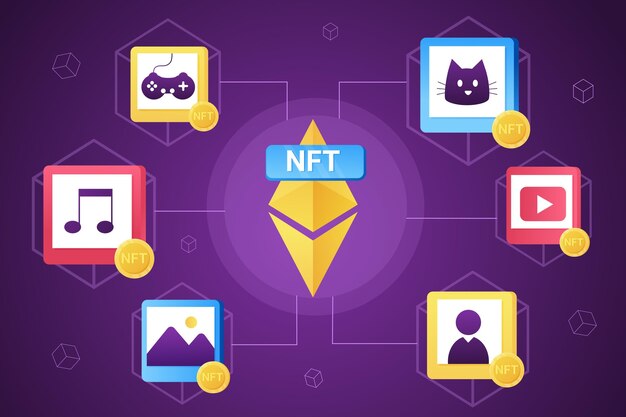(ICP) Introduction to Internet Computer Protocol: Exploring the Future of Web 3.0
Embark on a remarkable journey as we delve into the vast realms of the digital realm, a mosaic of interconnected networks that transcends geographical boundaries and conventional limitations. In this captivating exploration, we shall unravel the captivating intricacies of the ethereal domain that permeates our daily lives – cyberspace.
Prepare to embark on a parallel dimension where ideas are exchanged, virtual communities thrive, and untold opportunities await. Within the intricate tapestry of cyberspace, information flows seamlessly, shaping our ever-evolving digital society. Brace yourself for an immersive exploration of the multifaceted intricacies that propel the heart of this expansive realm.
With each passing day, the fusion of technology and human endeavours forges an intricate web that envelops our world, interconnecting millions of individuals, businesses, and devices. As we unlock the virtual door to this captivating universe, prepare to witness a kaleidoscope of possibilities come to life before your very eyes.
Be prepared to traverse through a landscape where limitations fade, ideas flourish, and innovation thrives. Brace yourself as we embark on a transformative expedition that will provide an in-depth understanding of the vast digital tapestry that defines our modern era. Engage your intellect, ignite your curiosity, and join us on this exhilarating quest to unravel the enigmatic world of cyberspace.
The Role of Internet Computer in Decentralization
In the realm of digital transformation, the Internet Computer plays a crucial role in the paradigm shift towards decentralization. This emerging technology empowers individuals and organizations to redefine the traditional dynamics of trust and control, offering a new framework for the future of the web.
Empowering Individuals and Organizations: The Internet Computer provides a decentralized infrastructure that enables users to directly interact with applications and services, eliminating reliance on intermediaries or central authorities. With this newfound autonomy, individuals have greater control over their data, while organizations can develop innovative solutions free from the constraints of centralized systems.
Redefining Trust and Security: By utilizing blockchain technology, the Internet Computer ensures transparency, immutability, and verifiability. This fosters a trustless environment, where trust is based on cryptographic protocols and smart contracts rather than on centralized entities. Moreover, the decentralized nature of this technology enhances security, as it significantly reduces the risk of single points of failure and potential data breaches.
Enabling Scalability and Efficiency: The Internet Computer leverages its network of interconnected nodes to provide a highly scalable and efficient platform. Through its use of sharding techniques, it is capable of processing a vast amount of transactions and computations in parallel, enabling rapid and cost-effective operations at a global scale. This scalability is essential for supporting the growing demands of decentralized applications (dApps) and ensuring a seamless user experience.
Fostering Innovation and Collaboration: The Internet Computer’s open and permissionless nature encourages innovation and collaboration among developers and entrepreneurs. With its native programming language, developers can easily build and deploy applications directly on the platform, fostering a vibrant ecosystem of dApps. Additionally, the ability of different dApps to interoperate on the Internet Computer facilitates the creation of novel services and strengthens cross-platform integration.
Paving the Way to Web 3.0: The Internet Computer stands as a crucial building block in the development of Web 3.0, a decentralized and user-centric web. By providing the necessary infrastructure for secure, scalable, and efficient decentralized applications, it paves the way for a future where individuals and organizations have greater sovereignty over their digital lives and the ability to shape the internet landscape.
In summary, the Internet Computer’s key role in decentralization lies in empowering individuals and organizations, redefining trust and security, enabling scalability and efficiency, fostering innovation and collaboration, and ultimately, paving the way towards the realization of Web 3.0.
Exploring the Components of Internet Computer
In this section, we will delve into the various elements that make up the Internet Computer, gaining a comprehensive understanding of its inner workings and architecture. By examining its components, we can grasp the intricate network of interconnected systems that power this innovative technology.
Storage and Computation
One key component of the Internet Computer is its robust storage and computation capabilities. By utilizing distributed ledger technology and cryptographic protocols, the Internet Computer is able to securely store and process vast amounts of data. This decentralized approach ensures data integrity and enables efficient computation across multiple nodes within the network.
Canister System
The Canister System is another fundamental element of the Internet Computer. It provides a containerized environment for running smart contracts and other software modules. Canisters encapsulate code and state, allowing for secure and isolated execution. With the Canister System, developers can deploy their applications and services onto the Internet Computer platform, leveraging its scalability and tamper-proof nature.
| Component | Description |
|---|---|
| Subnet | A subset of nodes within the Internet Computer network responsible for executing computations and storing data. |
| Internet Identity | A decentralized identity system that enables users to authenticate and interact with the Internet Computer securely. |
| IC Protocol | The protocol that facilitates communication and consensus among nodes within the Internet Computer network. |
| InterCanister Communication | A mechanism that allows canisters to interact and exchange data with each other, enabling modular and scalable application development. |
By exploring these components and their functionalities, we can gain a comprehensive understanding of the Internet Computer and its potential to revolutionize the way we interact with decentralized systems and applications.
Unveiling the Purpose of Internet Computer’s Canister System
The Canister System, an integral component of the Internet Computer, serves a significant purpose in the overall functioning and efficiency of this innovative platform. By decoupling application logic from the traditional server-client model, the Canister System empowers developers to build and deploy robust and scalable decentralized applications.
Operating as a unit of computation, the Canister System ensures fault tolerance, isolation, and seamless scalability. It facilitates the creation of autonomous and self-contained software modules, known as canisters, which encapsulate application code, state, and resources. Canisters provide a secure execution environment, enabling the deployment of applications that run directly on the Internet Computer.
By leveraging the Canister System, developers can take advantage of the Internet Computer’s unique features, such as the ability to interoperate with other canisters and access shared data and services. Canisters can communicate with each other, allowing for seamless integration and collaboration among different applications. This opens up a world of possibilities, enabling the creation of complex decentralized systems that can span multiple canisters.
The Canister System not only enhances application development but also enables efficient resource management. It ensures optimal utilization of computational resources by dynamically allocating and scaling canisters based on demand. This flexibility and adaptability contribute to the Internet Computer’s ability to handle large-scale applications and provide a seamless user experience.
To summarize, the Canister System of the Internet Computer plays a vital role in decentralizing application development and enabling the creation of scalable, autonomous, and interconnected software modules. It revolutionizes the traditional client-server model by introducing a secure and efficient framework that empowers developers to build innovative decentralized applications for the Internet Computer platform.
Benefits and Challenges of Using Internet Computer
Exploring the advantages and obstacles associated with the utilization of the Internet Computer platform can provide a deeper understanding of its potential impact. This section delves into the benefits and challenges one may encounter when utilizing this advanced technology.
Benefits
The Internet Computer offers several notable benefits that set it apart from traditional computing systems. Firstly, it provides a highly scalable and powerful platform, allowing developers to build and deploy complex applications without the need for external infrastructure. This inherent scalability also enables efficient resource allocation, ensuring optimal performance and responsiveness.
Secondly, the Internet Computer introduces a novel approach to data privacy and security. By utilizing blockchain technology, it enables tamper-proof and immutable data storage, enhancing trust and reducing the risk of fraudulent activities. Additionally, the platform offers strong confidentiality controls to protect sensitive data, ensuring that only authorized parties have access.
Moreover, the Internet Computer fosters a decentralized application ecosystem, empowering developers and users alike. It enables the creation of open internet services that are not controlled by centralized entities, promoting a more inclusive and collaborative digital environment. This decentralization also provides resilience against single points of failure and censorship, enhancing the overall robustness of the system.
Challenges
Despite its numerous benefits, utilizing the Internet Computer also presents certain challenges that need to be addressed. Firstly, the platform requires developers to adapt to new programming concepts and frameworks, as it utilizes specialized languages such as Motoko. This learning curve may pose challenges for developers with prior experience in traditional programming languages.
Additionally, the decentralized nature of the Internet Computer introduces complexity in terms of governance and decision-making processes. As the platform is governed by a network of nodes, achieving consensus on protocol updates and system changes can be a time-consuming and intricate process. Balancing decentralized decision-making with efficient decision implementation requires careful coordination and community engagement.
Lastly, the Internet Computer currently faces scalability limitations and performance challenges. While the platform aims to offer seamless scalability, achieving this goal in a decentralized environment is a complex task. Overcoming these challenges requires continuous optimization and innovation to ensure a smooth user experience even as the network grows in size and usage.
| Benefits | Challenges |
|---|---|
| High scalability and power | Learning curve for developers |
| Enhanced data privacy and security | Complex governance and decision-making |
| Decentralized application ecosystem | Scalability limitations and performance challenges |
Potential Applications and Future Implications of Internet Computer Technology
The transformative potential of Internet Computer technology reaches far beyond its current applications. This section explores the exciting possibilities that lie ahead and the potential impact they may have on various industries and societal aspects.
- Finance and Banking: Internet Computer technology has the potential to revolutionize the financial industry by enabling decentralized and transparent transactions, reducing fees and intermediaries, and ensuring increased security and privacy.
- Data Management and Storage: With the Internet Computer, organizations can securely store and manage massive amounts of data without relying on centralized servers, thus eliminating the risks associated with single-point failures and enhancing data accessibility and security.
- Smart Contracts and Decentralized Applications (DApps): Internet Computer technology allows for the creation of scalable and secure smart contracts and DApps, enabling automated and trustless interactions between parties without the need for intermediaries.
- Supply Chain Management: By leveraging the Internet Computer’s capabilities, supply chains can be streamlined and made more efficient, with real-time tracking and verification of goods, reducing fraud and enhancing transparency in the process.
- Governance and Democracy: Internet Computer technology has the potential to redefine governance structures by enabling decentralized decision-making and voting systems, ensuring inclusivity, transparency, and accountability.
As the Internet Computer evolves and matures, its implications go beyond individual industries. It has the potential to reshape our digital infrastructure, leading to a more decentralized and democratic internet. With increased scalability, security, and efficiency, the Internet Computer technology holds promise for a future where power and control are distributed among the many, empowering individuals and communities.
Questions and answers: What is internet computer
What is Internet Computer?
Internet Computer is a new blockchain-based platform that aims to extend the functionality of the internet by combining blockchain technology with smart contracts to enable efficient and secure decentralized applications.
How does Internet Computer work?
Internet Computer works by utilizing a network of decentralized nodes that collectively form a blockchain. These nodes run a special software called the Internet Computer Protocol (ICP), which allows them to communicate and validate transactions. Smart contracts are used to enable the execution of decentralized applications on the network.
What are the advantages of Internet Computer?
Internet Computer offers several advantages over traditional blockchain platforms. One of the key advantages is its scalability, as it is designed to handle millions of users and transactions without compromising performance. Additionally, it aims to provide a more secure and tamper-proof environment for running decentralized applications.
What types of applications can be built on Internet Computer?
Internet Computer allows for the development of various types of applications, including social media platforms, decentralized finance (DeFi) applications, online marketplaces, and even internet services. The platform provides developers with a set of tools and frameworks to build and deploy their applications in a decentralized and efficient manner.
How does Internet Computer ensure the security of decentralized applications?
Internet Computer incorporates various security measures to ensure the safety of decentralized applications. These include cryptographic techniques to secure data and transactions, as well as a system of decentralized governance to prevent malicious activities. The platform also allows for the creation of canisters, which are secure execution environments for smart contracts.
What is the ICP token?
The ICP token, short for Internet Computer Protocol token, is the native cryptocurrency of the Internet Computer Blockchain, also known as the DFINITY blockchain.
How does the ICP token differ from Bitcoin and Ethereum?
While Bitcoin and Ethereum operate on their respective blockchains, the ICP token operates specifically within the Internet Computer Blockchain, which aims to provide a decentralized network for hosting and running applications.
What role does the Network Nervous System (NNS) play in the Internet Computer Blockchain?
The Network Nervous System (NNS) serves as the governance mechanism for the Internet Computer Blockchain, enabling token holders to participate in decision-making processes regarding protocol upgrades, network parameters, and other governance matters.
Who is Dominic Williams, and what is his connection to the ICP token?
Dominic Williams is the founder of DFINITY and one of the key figures behind the development of the Internet Computer Blockchain, which utilizes the ICP token as its native cryptocurrency.
What is a canister smart contract in the context of the Internet Computer Blockchain?
A canister smart contract is a type of smart contract deployed on the Internet Computer Blockchain, which operates as a decentralized network of interconnected canisters, each hosting and executing code.
How does the Internet Computer Blockchain utilize cryptography?
Cryptography plays a crucial role in securing transactions, validating network activity, and ensuring the integrity of data stored and processed on the Internet Computer Blockchain.
What distinguishes the Internet Computer Blockchain from traditional data centers?
Unlike traditional data centers, which rely on centralized infrastructure, the Internet Computer Blockchain operates as a decentralized network of nodes, allowing for increased resilience, censorship resistance, and tamper-proof data storage.
What is Web3, and how does it relate to the Internet Computer Blockchain?
Web3 refers to the vision of a decentralized and user-centric internet, where individuals have greater control over their data and digital interactions. The Internet Computer Blockchain aligns with this vision by providing a platform for building decentralized applications (DApps) and services.
What is the involvement of the DFINITY Foundation in the development of the Internet Computer Blockchain?
The DFINITY Foundation is the organization responsible for spearheading the development and governance of the Internet Computer Blockchain, including the design, implementation, and promotion of the ICP token and related technologies.
How does the Internet Computer Blockchain challenge the dominance of big tech companies?
By offering a decentralized alternative to traditional internet infrastructure, the Internet Computer Blockchain aims to democratize access to computing resources, foster innovation, and reduce reliance on centralized platforms owned by big tech companies.
How does the Internet Computer challenge the traditional internet?
The Internet Computer aims to create a decentralized alternative to the current centralized internet infrastructure, enabling the development and hosting of applications and services in a more open and democratic manner.
What role does the Chain Key technology play in the Internet Computer protocol?
Chain Key technology ensures the integrity and security of the Internet Computer Blockchain by enabling efficient and secure communication between nodes and ensuring consensus among network participants.
What is the significance of the Network Nervous System (NNS) in the Internet Computer ecosystem?
The Network Nervous System (NNS) serves as the governance mechanism for the Internet Computer Blockchain, allowing token holders to participate in decision-making processes and shape the future development of the network.
How does the ICP token contribute to the functioning of the Internet Computer protocol?
The ICP token serves as the native cryptocurrency of the Internet Computer Blockchain, used for transactions, network fees, and incentivizing participation in the ecosystem.
What distinguishes the Internet Computer from centralized internet services like Amazon Web Services (AWS)?
Unlike centralized services like AWS, which rely on proprietary infrastructure and control, the Internet Computer operates on a decentralized network of independent data centers, providing greater resilience, security, and censorship resistance.
How does the Internet Computer protocol enable web experiences to “run at web speed”?
The Internet Computer protocol leverages advanced technologies and architecture to enable decentralized applications (DApps) and services to run with high performance and low latency, comparable to traditional web experiences.
What is the potential impact of the Internet Computer on the current internet landscape?
The Internet Computer has the capacity to challenge the dominance of centralized internet platforms and services by offering a decentralized alternative that prioritizes user privacy, security, and control over data.
Who controls the Internet Computer Blockchain?
The Internet Computer Blockchain is governed by the Network Nervous System (NNS), a decentralized autonomous organization (DAO) controlled by ICP token holders, ensuring democratic decision-making and protocol governance.
How does the Internet Computer protocol verify the authenticity of data and transactions?
The Internet Computer protocol utilizes cryptographic techniques and consensus mechanisms to verify the authenticity of data and transactions, ensuring the integrity and security of the network.
What are some potential applications of the Internet Computer protocol?
The Internet Computer protocol enables the development and deployment of decentralized applications (DApps) across various industries, including finance, gaming, social media, and more, offering opportunities for innovation and disruption.








No responses yet